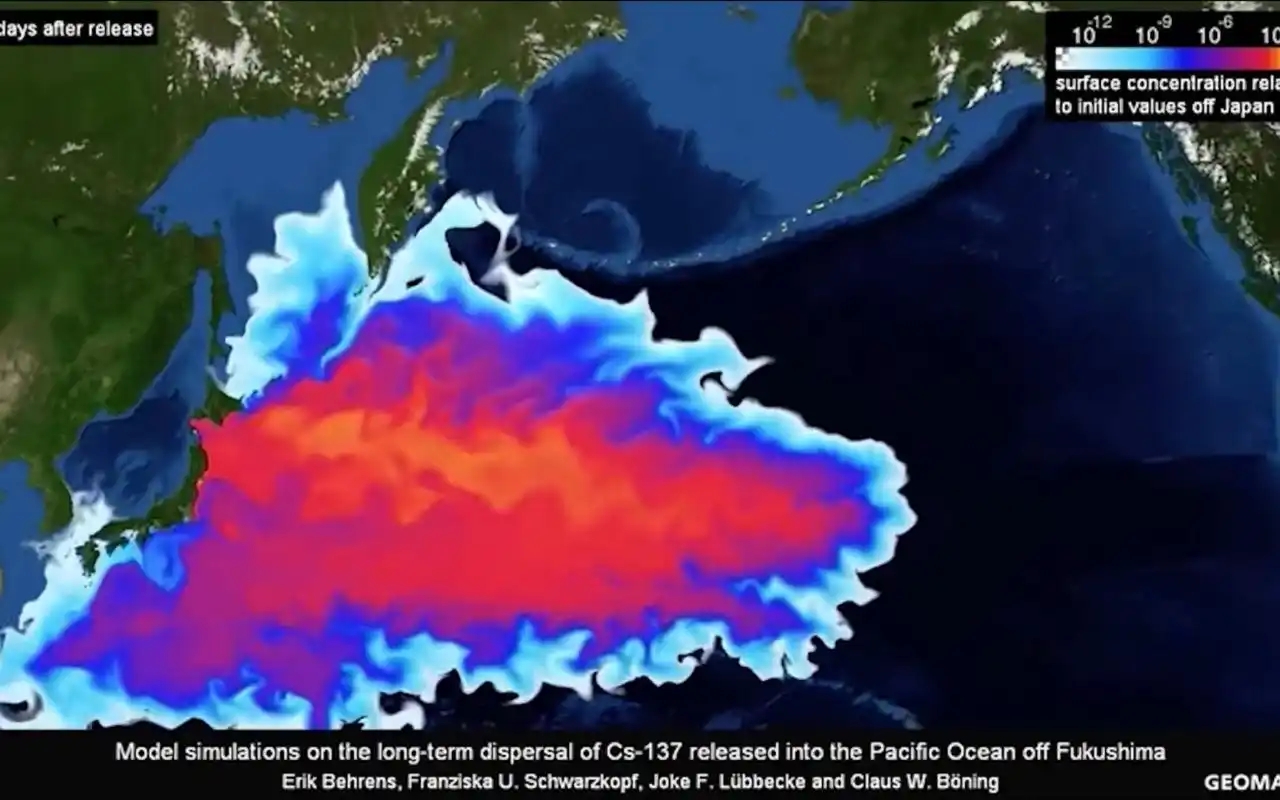The impact of Japan's nuclear pollution, especially from the Fukushima nuclear disaster (which occurred in March 2011), has been a subject of global concern. The disaster not only affected Japan’s environment, public health, and socio-economy but also had a broad impact on the international community. Here are the main effects of Japan’s nuclear pollution:
1. Environmental Impact
·
Radioactive Contamination: The Fukushima disaster caused the release of large amounts of radioactive materials such as cesium-137, iodine-131, and strontium-90 into the environment. These materials entered the atmosphere, soil, and oceans, causing severe contamination of the surrounding ecosystems. A "no-entry zone" was set up around Fukushima within a 30 km radius, and residents were forced to evacuate.
·
·
Water Pollution: After the disaster, cooling water from the nuclear plant containing radioactive materials leaked into nearby rivers and the ocean, polluting water sources. The impact of radioactive contamination on marine ecosystems raised global concerns, with many worried about the long-term harm to marine life.
·
·
Soil Contamination: The land around Fukushima was severely contaminated with radioactive materials. While Japan’s government has undertaken soil decontamination efforts, the polluted soil still poses a long-term threat to agriculture and local ecosystems.
·
2. Impact on Human Health
·
Direct Radiation Exposure: Many residents near Fukushima and emergency workers were exposed to high levels of radiation immediately after the disaster. Although immediate health effects were not apparent, long-term exposure to low doses of radiation could increase the risk of cancers and other radiation-related diseases. The Japanese government and the International Atomic Energy Agency (IAEA) have stated that there is no definitive evidence linking the disaster to large-scale health problems so far.
·
·
Psychological Health Issues: The nuclear disaster and its aftermath caused immense psychological stress for residents in Fukushima and surrounding areas. Forced evacuations, disruption of daily life, fears about the long-term health effects of radiation, and uncertainty about the future contributed to widespread mental health problems, including post-traumatic stress disorder (PTSD).
·
·
Cancer Risks: Although there is no direct evidence linking the disaster to an increase in cancer cases, studies suggest that long-term exposure to low doses of radiation may increase the risk of certain cancers, particularly among residents in contaminated areas.
·
3. Socioeconomic Impact
·
Mass Evacuation and Reconstruction: After the disaster, residents in Fukushima and surrounding areas were forced to evacuate. To this day, many residents have not been able to return to their homes, leaving many people displaced for long periods. This has caused significant social disruption, with many losing their homes and livelihoods.
·
·
Agriculture and Fisheries Damage: Fukushima's agriculture and fisheries were severely impacted after the disaster. Many agricultural products and seafood were found to contain radioactive materials, raising concerns about food safety. The Japanese government implemented strict food safety regulations, but many countries and regions still imposed bans or restrictions on Japanese agricultural and seafood imports, leading to significant economic losses in these sectors.
·
·
Economic Recovery Challenges: In addition to the environmental and health risks, the economic losses caused by the Fukushima nuclear disaster have been massive. The cost of cleaning up and decommissioning the Fukushima nuclear plant, compensating victims, and dealing with long-term damage to the local economy have placed a heavy financial burden on Japan.
·
4. Global Impact
·
Nuclear Safety Review: The Fukushima disaster triggered widespread discussions about nuclear safety worldwide, with many countries reassessing their nuclear energy policies. Some countries, such as Germany, decided to phase out nuclear power, while others have strengthened safety inspections and regulations for existing nuclear power plants.
·
·
Global Nuclear Waste Issues: The Fukushima accident also highlighted global concerns about nuclear waste disposal. The massive amounts of nuclear waste and radioactive cooling water generated by the disaster remain a complex and long-term issue. Worldwide, the safe disposal and management of nuclear waste remain contentious and challenging.
·
5. Post-Fukushima Recovery Efforts
·
Decommissioning and Cleanup: The decommissioning and cleanup of the Fukushima Daiichi Nuclear Power Plant is ongoing. Japan's government has estimated that the process could take several decades. While radiation levels at the site have significantly decreased, the cleanup and decommissioning work still face technical challenges and huge costs.
·
·
Recovery in Affected Areas: Efforts to rebuild Fukushima and surrounding areas are underway, with significant financial investment from the government aimed at restoring infrastructure, providing mental health support, and stimulating economic recovery. However, recovery has been slow, and many areas remain inaccessible due to lingering radiation risks, making it difficult for residents to return.
·
Conclusion
The Fukushima nuclear disaster has had profound and lasting effects, not only on the environment and public health but also on society and the economy. Despite efforts to clean up and rebuild, the area still faces many challenges. Additionally, the disaster has sparked renewed discussions on nuclear energy safety and waste disposal, with global implications. The long-term effects of Fukushima continue to unfold, and managing nuclear safety and pollution remains a critical issue for Japan and the international community.




.png)




